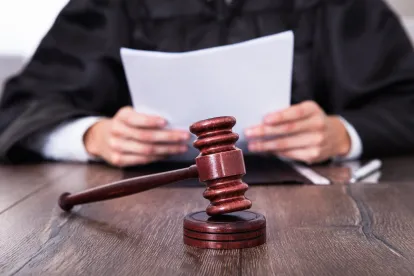Contractors performing work in California are required to be licensed by the California State License Board (“CSLB”). Cal. Bus. & Prof. Code §7065. Except for sole proprietors, contractors are typically licensed through “qualifiers,” i.e., officers or employees who take a licensing exam and meet other requirements to become licensed on behalf of the contractor’s company. Contractors who perform work in California without being properly licensed are subject to a world of hurt, including civil and criminal penalties (see, e.g., Cal. Bus. & Prof. Code §§ 7028, 7028.6, 7028.7, 7117, and Cal. Labor Code §§ 1020-1022), and the inability to maintain a lawsuit to recover compensation for their work. Cal. Bus & Prof. Code § 7031(a); Hydra Tech Systems Ltd. v. Oasis Water Park, 52 Cal.3rd 988 (1991).
But arguably the worst ramification of not being property licensed is that established in Business & Professions Code Section 7031(b), which provides that any person who uses the services of an unlicensed contractor may bring an action for the return of all compensation paid for the performance of the work, commonly known as “disgorgement.” This remedy is particularly harsh (often described as “draconian”) because it makes no allowance for the fact that an unlicensed contractor will likely have already paid out the bulk of its compensation to its subcontractors, suppliers and vendors, but nevertheless can be ordered to disgorge all compensation.
Given the complexity of California’s contractor license law, the disgorgement penalty threatens not just contractors who willfully evade licensing, but also those who inadvertently fail to keep their license current, those who are improperly licensed for the specific work they are performing, and those who do not meet particular underlying licensing requirements, e.g., failure to maintain workers compensation insurance unless truly exempt, and (arguably) failure of the qualifying agent to have sufficient supervision and control of his or her employer’s or principal’s construction operations. Project owners, in particular, have used disgorgement actions as both a sword and a shield in disputes with their general contractors.
In a new opinion addressing issues of “first impression” (i.e., never ruled on previously), Eisenberg Village of the Los Angeles Jewish Home for the Aging v. Suffolk Construction Company, Inc. (2d App. Dist, B297247), filed August 26, 2020, the Court makes two significant holdings. The first is that the time in which a disgorgement action can be brought (known as the statute of limitations) is only one year. The second is that this one-year statute of limitation starts to run (accrue) on the date contractor’s work ceases — not from the date when the license violation is discovered. The basis for the first holding is that disgorgement is both a liability created by statute and a penalty, and therefore falls under Code of Civil Procedure Section 340(a), a one year statute of limitations. The basis for the second holding is that the discovery rule of accrual is based in equity, whereas a disgorgement claim is not intended to compensate claimant for any injury, but to punish the unlicensed contractor, and therefore is not subject to equitable considerations.
This ruling is a huge win for contractors because it significantly limits the time during which they are exposed to possible disgorgement for non-licensure or for license violations that equate to non-licensure. In contrast, it deprives unwary owners of the ability to assert a disgorgement claim unless they become aware of the licensing violation within one year of the project’s completion (though owners retain the ability to assert other causes of action for longer periods, e.g., two years for negligence, four years for breach of contract, etc.).
In light of Eisenberg, at the outset of a project, a prudent owner will ascertain who the license qualifier is for its general contractor and document his or her involvement in the project from beginning to end (since certain supervisorial requirements must be met by an employee qualifier in order for the license to be valid). At the end of a project, a prudent owner will also review its contractor’s license status from the date of the bid through final completion. Not all owners will bring a disgorgement action against an unlicensed contractor who performed a project well. But few will want to forfeit their right to bring such an action by waiting more than a year following final completion to ascertain whether they have the grounds to do so.



 />i
/>i
